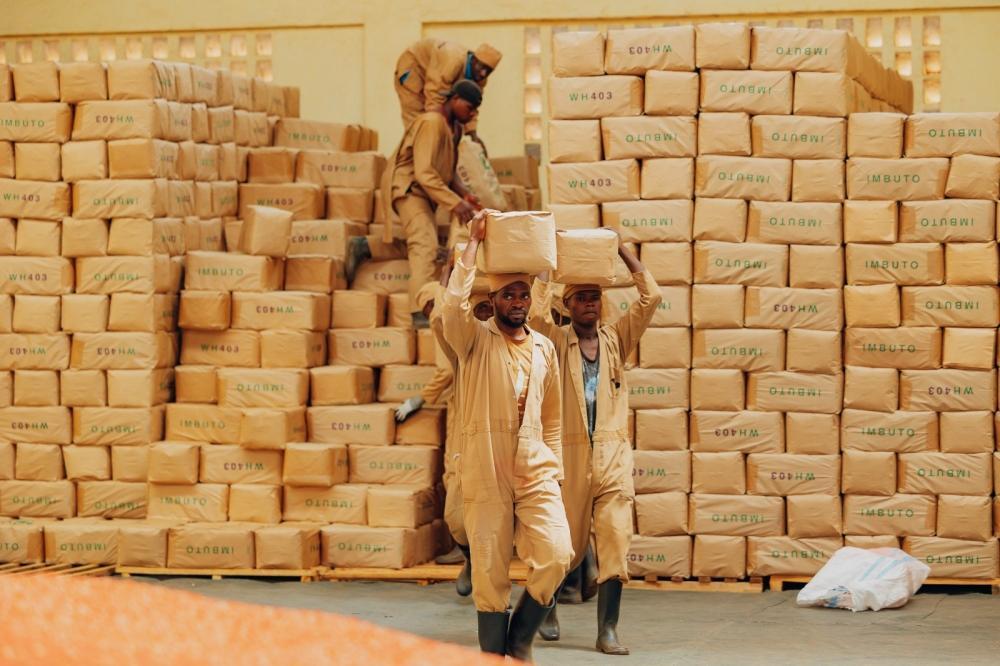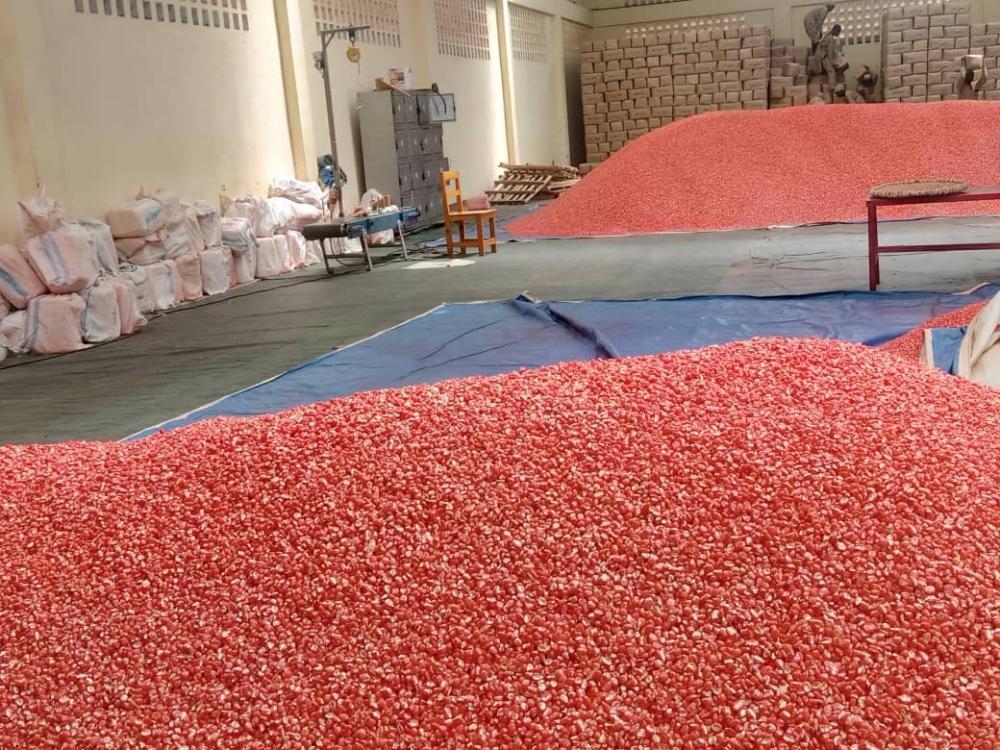Africa-Press – Rwanda. With limited tilled land and over 60 per cent of citizens relying on agriculture, the government tasked the Rwanda Defence Force (RDF) with helping to meet the country’s seed demand.
In 2015, RDF set up Gabiro Agro Processing Industry (Gabiro API), a subsidiary of Agro Processing Trust Corporation (APTC), to produce maize, bean, and soybean seeds locally. Today, the company runs over 1,000 hectares of farmland across Nyagatare and Bugesera districts, where it grows and processes both hybrid and open-pollinated varieties.
“We produce up to 1,500 tonnes of seed each year—enough to cover nearly a third of Rwanda’s seed requirement,” said Maj Jean-Pierre Habarurema, Chief Operations Officer at Gabiro API.
“That means fewer imports, fewer risks, and more jobs for people in rural areas.” Habarurema explained that Rwanda previously relied on imported seeds, which often arrived late or failed to grow.
“Most of the imported seeds weren’t suited to our conditions,” he said. “They either didn’t germinate properly or were damaged in transit. That put our farmers—and food security—at risk.”
Maj Jean-Pierre Habarurema serves as the Chief Operations Officer at Gabiro API, overseeing the company’s agricultural and operational strategies.
Gabiro API’s local production now addresses those problems while creating jobs for thousands of rural workers.
“We’ve reduced our dependence on external suppliers. This makes the system more reliable and gives us more control,” Habarurema added.
Indeed, as of 2020, Rwanda was spending around Rwf7 billion annually on importing more than 3,500 tonnes of maize, wheat, and soybean seeds, according to Rwanda Agriculture and Animal Resources Development Board (RAB).
However, the country got rid of a reliance on importing the three seeds since September 2021, according to the Ministry of Agriculture and Animal Resources. And, based on its output, Gabiro API is a major contributor to the country’s progress in this regard.
Gabiro API supports farmers beyond just the provision of seeds. It offers training, distributes inputs, assists with post-harvest handling, and connects farmers to markets. The company follows a full value-chain approach designed to improve productivity and resilience across the agriculture sector.
“We used to wait for imported seed that didn’t always work,” said Claudine Mukamana, a maize farmer from Karangazi. “Now, we get seeds from local agro-dealers working with Gabiro API. It suits our land, and my harvest has improved.”
Gabiro API supports farmers with more than just seeds, it offers training, farm inputs, post-harvest handling, and market connections, following a full value-chain approach to boost agricultural productivity and resilience.
Gabiro API employs over 200 permanent staff—both civilian and military—and its management estimates more than 100,000 casual workers linked to its activities nationwide.
“Food security is national security,” said Major Habarurema, “and that starts with producing quality inputs here at home.”
This work feeds directly into Rwanda’s National Strategy for Transformation (NST2), specifically Priority Area 6, which focuses on modernising agriculture.
The APTC, Gabiro API’s parent company, was created to promote access to quality inputs, invest in research, boost agro-processing, and professionalise farming. APTC also expanded into fertiliser production.
It partnered with Moroccan fertiliser company OCP Africa, and Agaciro Development Fund, to jointly own Rwanda Fertiliser Blending Plant set up at the Bugesera Special Economic Zone in Eastern Province – under a firm called Rwanda Fertiliser Company (RFC).
The factory, built to the tune of over $19.2 million (approx. Rwf24 billion), as per data from its owners, has an annual capacity to blend 100,000 tonnes fo fertilisers tailored to the specific soil and crop nutrient requirements in different parts of the country, according to data from its owners.
For More News And Analysis About Rwanda Follow Africa-Press








